Empowerment through Education and Engagement
Honor the past and shape the future—empowering communities through knowledge, remembrance, and action.
Empowerment
At the heart of ONGI’s mission is the empowerment of the descendants of the OvaHerero, Mbanderu, and Nama genocides. Reclaiming history, identity, and voice is essential for dignity, healing, and self-determination. ONGI supports intergenerational empowerment by creating spaces for reflection, dialogue, research, and cultural renewal—enabling communities to define their own narratives and pursue justice on their own terms.
Education
Education is a cornerstone of ONGI’s work—vital for truth-telling, awareness-raising, and prevention. We promote the inclusion of the genocides in local and global curricula, including Namibian and German schools, support community education initiatives, and provide accessible resources for schools, researchers, policymakers, and the public. Through education, we honor memory, dismantle denial, and foster an informed society committed to historical justice.
Engagement
ONGI translates remembrance into action. We actively engage with national and international stakeholders—including governments, civil society, and affected communities—to advocate for justice, reparations, recognition, and reconciliation. Our engagement also includes initiatives that promote healing and revitalization within communities, and contributions to the global movement for genocide prevention and human rights.
Activities
Statements - Action - Legislation
We speak not only for ourselves, but for those whose voices were silenced. This section brings together testimonies, public declarations, legal struggles, and political actions related to the Ovaherero and Nama genocides. From community voices to parliamentary motions and court cases, it captures a growing global demand for justice, truth, and recognition.
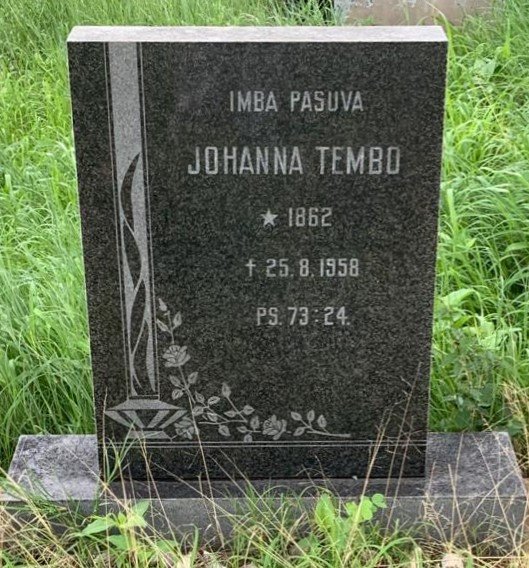
Information & Resources
"History is not only written by the powerful, but remembered by the steadfast.” This section serves as a central repository of documents, research, and historical records related to the Ovaherero, Mbanderu, and Nama genocides. It provides access to scholarly work, survivor testimonies, policy statements, court cases, and community-driven initiatives to support education, remembrance, and advocacy.
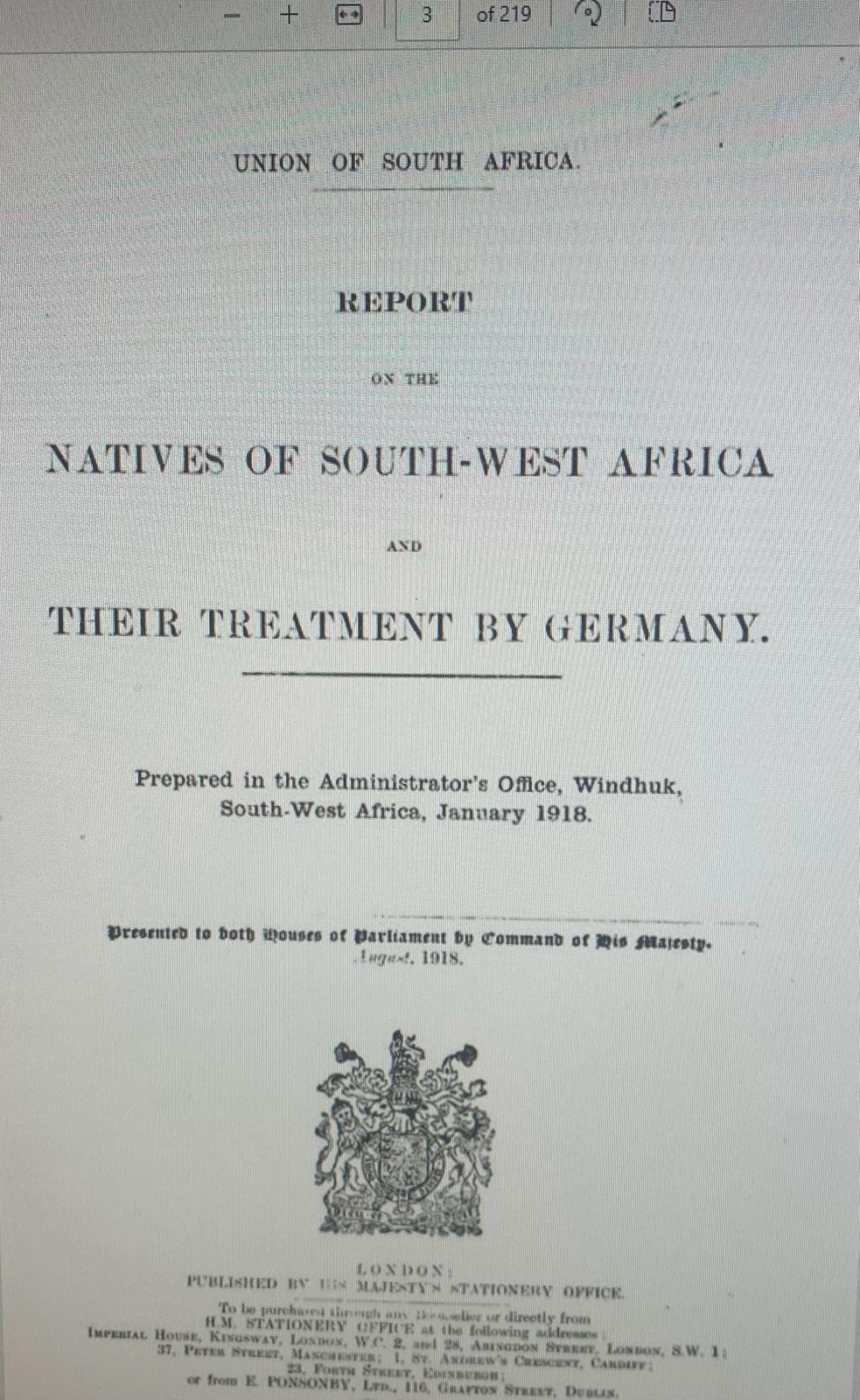
Stolen Human Remains
Return is not just imperative — It is moral, spiritual. Colonial powers stole more than bodies—they violated culture, belief, and dignity. This section shares the ongoing efforts to repatriate stolen human remains, highlighting advocacy by descendants, international campaigns, and the deeper call for ethical remembrance and ancestral honor.
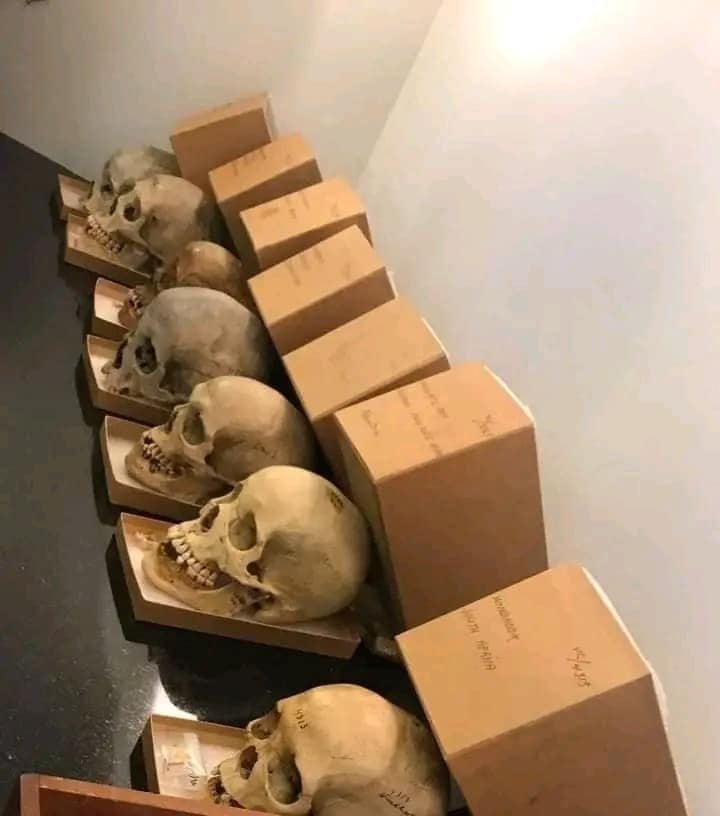
Genocide Survivors Project
We are the living testimony Survivors and their descendants carry the weight of memory and the will to be heard. Through stories and oral histories, this project preserves living truths—honoring those who endured and reminding future generations that silence is never an option.
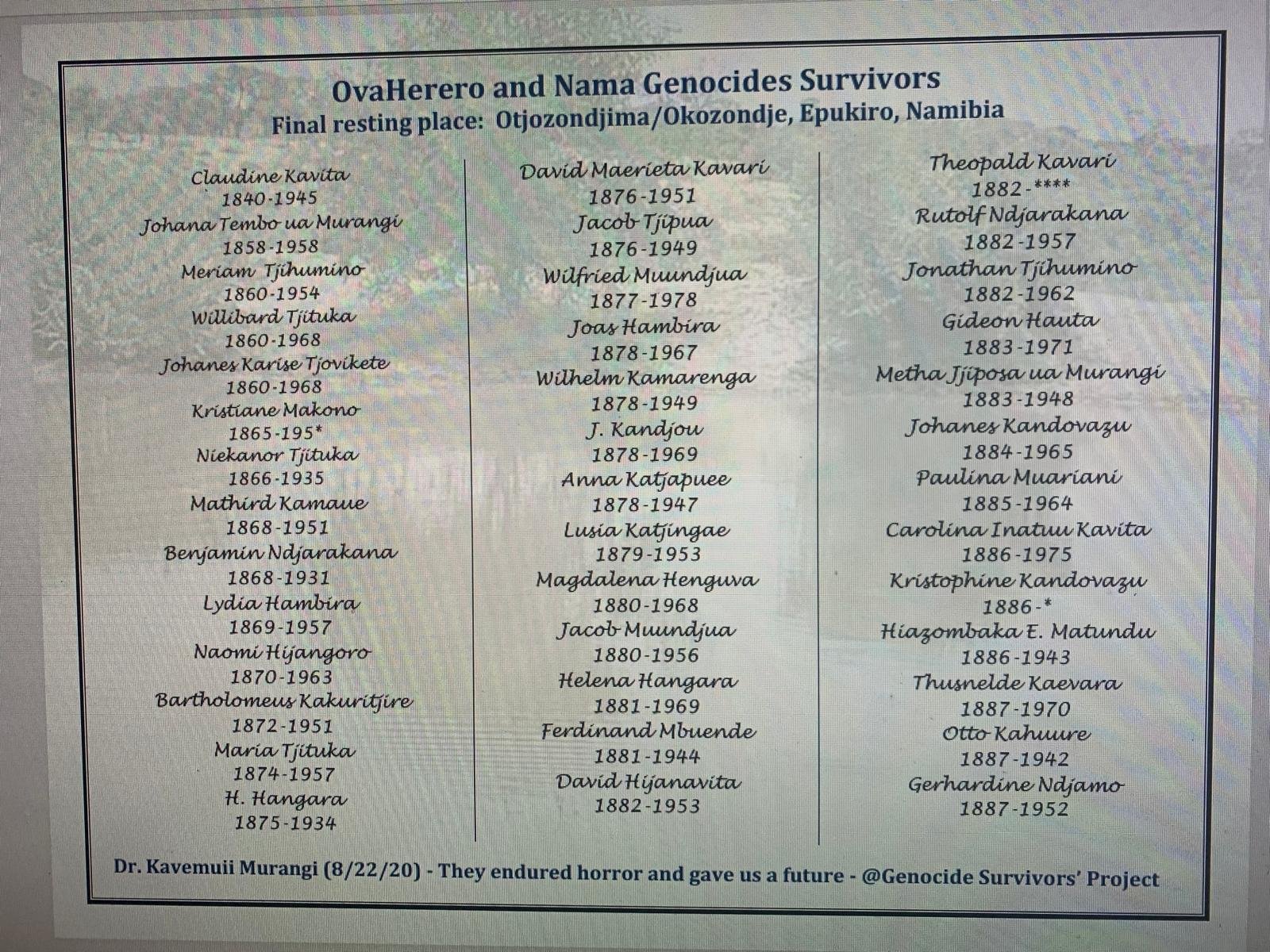
Genocide Anthologies
"Every story told is an act of resistance." Collected from families, writers, and oral historians, these anthologies speak across time. They give voice to trauma, resilience, and legacy—shared through literature, interviews, and testimony. They are acts of healing, reclamation, and storytelling justice.

Naming the Genocide Victims
"To name is to remember. To remember is to resist erasure." Restoring the names of those who perished is a powerful act of dignity. This space is dedicated to recording and publishing the names of genocide victims—affirming their humanity, resisting historical erasure, and offering a sacred act of remembrance.
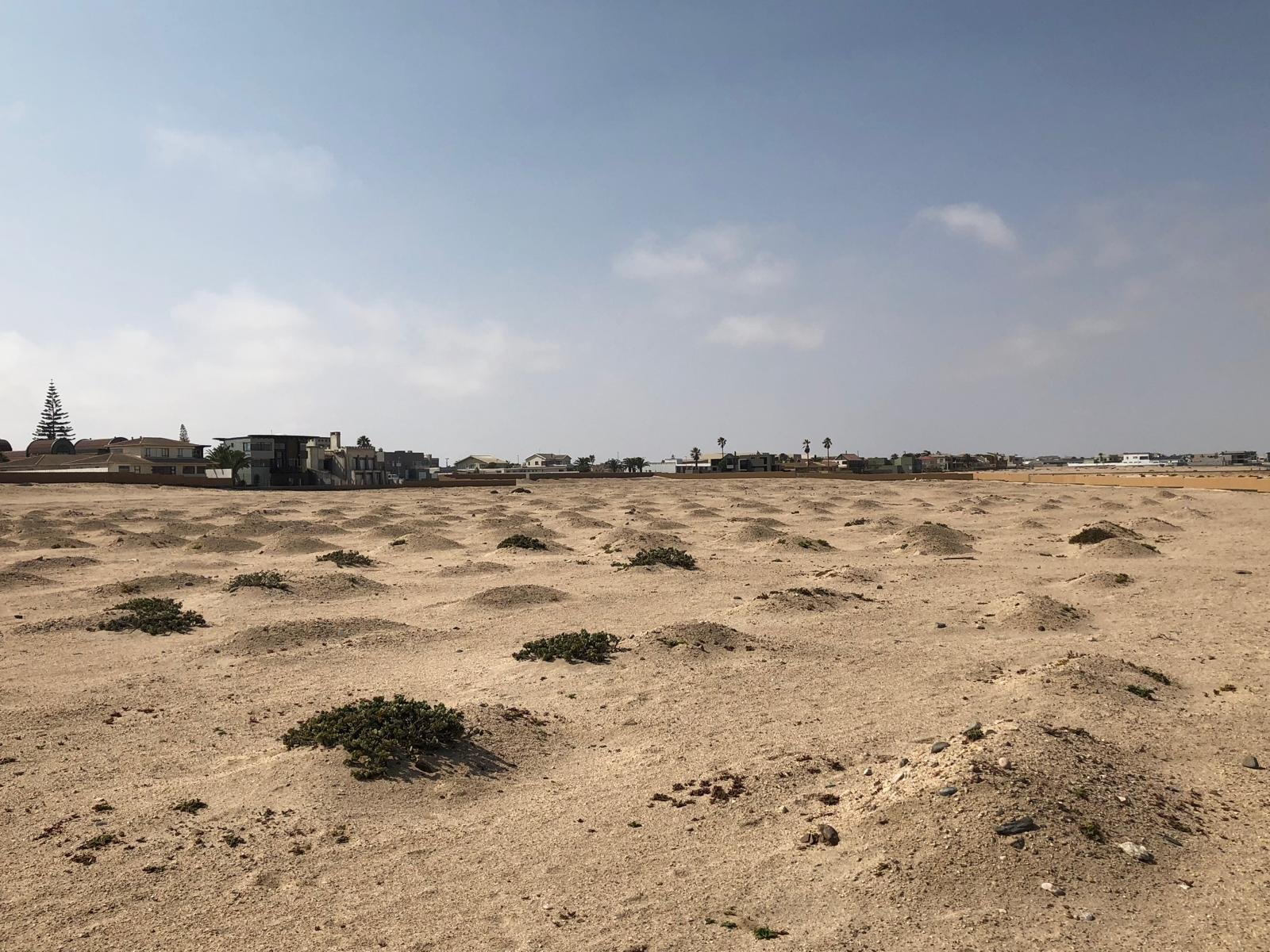
Blog
- All Posts
- General
To: Members of Parliament, Republic of Namibia From: Dr. Kavemuii Murangi, President and Founder of ONGI Re: Genocide agreement between...
After years of German denial and the Namibian government's indifference, this month could have marked the end of the genocide...
Ekuamo ra Kahimemua indi? A German-Namibian Colonial History – The Belt of Kahimemua Nguvauva – by Christiane Habermalz. The following is...
Join Our Mission
Get involved with ONGI today and help us create a brighter future.
